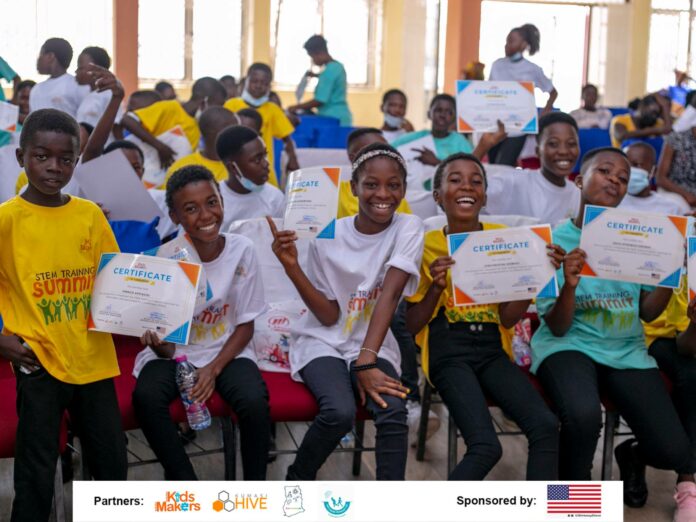|
Getting your Trinity Audio player ready...
|
Some 45 children, in and around Kentinkrono in the Oforikrom Municipality of the Ashanti region, on Saturday, December 19, 2020, successfully passed out from the Kids Makers Project, a program sponsored by the U.S. Embassy Ghana.
The Kids Makers, an initiative of the Kumasi Hive, is about equipping kids in basic schools with digital and soft skills, outside the regular curriculum.
This training is expected to guide them in their future career paths and also promote the study of Science, Technology, Engineering, and Math (STEM).
The 45, made up of 19 girls and 26 boys, completed projects in 3D Modelling and Printing, Electronics, and Scratch Programming. Other courses include Photography and Editing, Robotics, Game Programming, Digital Art, Coding, Animation, Mine Craft, etc.
The kids received certificates of participation for projects like Home-made Kettle, House with Doorbell, Electric Bus, Walking Robot, Rocket Blaster game, Corona Killer Game, Corona Awareness Story, Simple Social Story, The Heart Project, 3D Printed Money Box, T-roll Stand, Key Holders and Stationery Case.
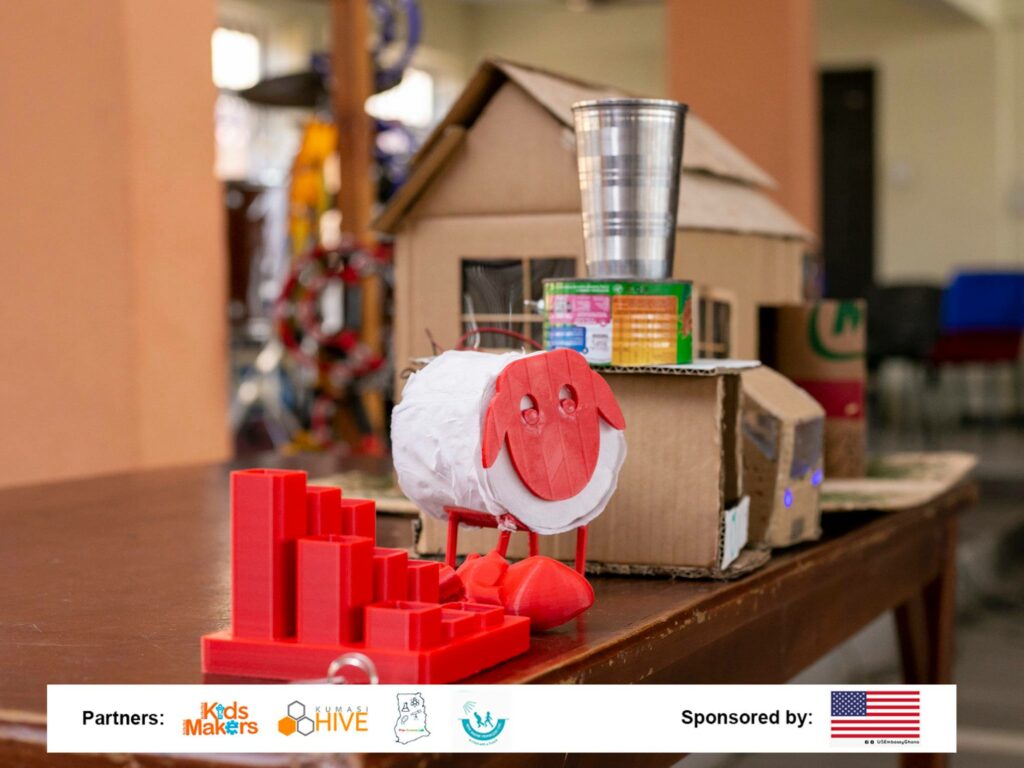
According to the Managing Associate for the Kumasi Hive, Maurice Nii Adjei Caschinco “The world is in a tech-industrialization age and Africa is a bit behind. Luckily, we at Kumasi Hive, find ourselves in a position where we have an understanding and opportunities available with STEM, to channel to the young ones and give them the basics in technology. With this, they can help further transform the economy of Ghana in the years to come.”
“Since the inception of the Kids Makers in 2015, about 2,000 youth have been trained; the training we give to the elderly, is what we give the children, only, in a basic format so that they can understand all that technology is about”, Mr. Caschinco asserted.
At certain periods during the program, different individuals play the role of Project Leads.
One of the two for this session, Bernardine Ayim-Gharbin also intimated that “All the African child knows how to do, is to go to school and do theory; nothing practical is being added to what is learned and so if you don’t pass your exams, it means you’re not getting anything really good to do.”
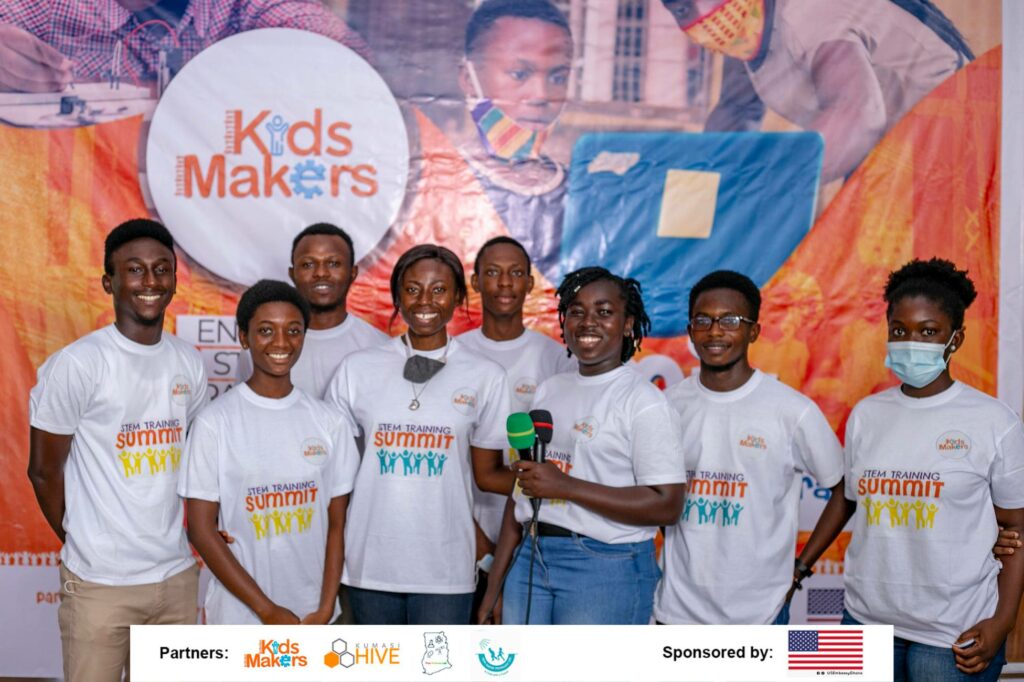
She added that “Before Covid-19, we visited selected private schools to enroll students who showed interest in the program and teach them as part of their subjects. We also engaged in community pay-backs, post-lockdown, where we would reach out to children in communities and train them, both strategies free of charge.”
In the second half 2020, the Kids Makers won a grant from the U.S. Embassy Ghana to train more young people.
The Counselor for Public Affairs, Virginia Elliott, who joined the graduation ceremony virtually, congratulated the class on behalf of the Embassy and urged them to make good use of the skills they had acquired.
“I chanced upon Kids Makers on Twitter and I saw all kinds of learning and fun. We know that this program was developed to encourage you, students, to develop your digital skills. Creating opportunity through educational development and improve running outcomes is one of the U.S. Embassy’s priorities in Ghana.”
She continued that “The U.S. Ambassador herself, Amb. Stephanie S. Sullivan has frequently remarked that a robust economy in Ghana depends on much more than its natural lot; it also depends on human resource and we know that human resource starts with education. Through the U.S. Embassy’s partnership with Kids Makers, we hope to see the participants do well.”
Daniel Etrue, another Project Lead was full of praise to the U.S. Embassy Ghana for its funding.
He stated that “The resources of the Kumasi Hive were not enough, given that we wanted to train a lot of people. This is why we wrote a proposal to the U.S. Embassy and thankfully after we received their support, we’ve been able to train more than we expected.”
Some of the graduands also shared their excitement about what they had learned.
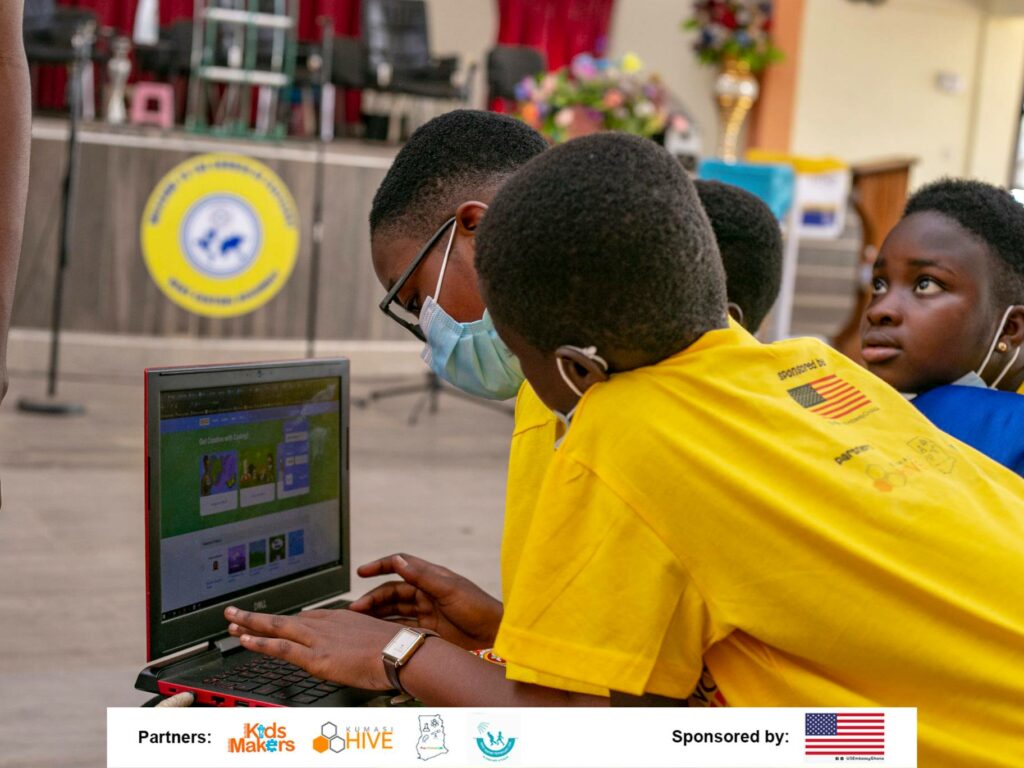
“My name is Florence Owusu, a 13-year-old JHS 1 pupil at the Kentinkrono MA Basic School and I learned Electronics. I heard about the Kids Makers Project through Compassion Ghana. At first, I was not good at Electronics at school and I also thought it was only for boys but in the future, I’m going to use what I have learned for work.”
“I am Kelvin Asare, a 13-year-old JHS 1 pupil at KNUST JHS. I heard about the program through the Kentinkrono Information Centre. I learned 3D Modelling and Printing. Now I know how to create objects and print. I want to be a lawyer but I’ll add this skill too.”
11-year-old Faustina Nana Boatemaa Nyameke, who attends school at Sidwell School and in class 4, learned Scratch Programming. She defined Scratch as a graphical programming language that allows one to drag and drop coloured coordinates.
“You can use the Scratch app to make interactive stories, games, videos, and animations. When I return to school, I’ll tell my mates that Scratch is very fun and teach them how to use the app. I will also talk to our headmistress and the owner of the school to add the Scratch app to our curriculum so that it will improve our knowledge”, she mentioned.
Meanwhile, a second cycle education level of the Kids Makers is expected to be rolled out soon.
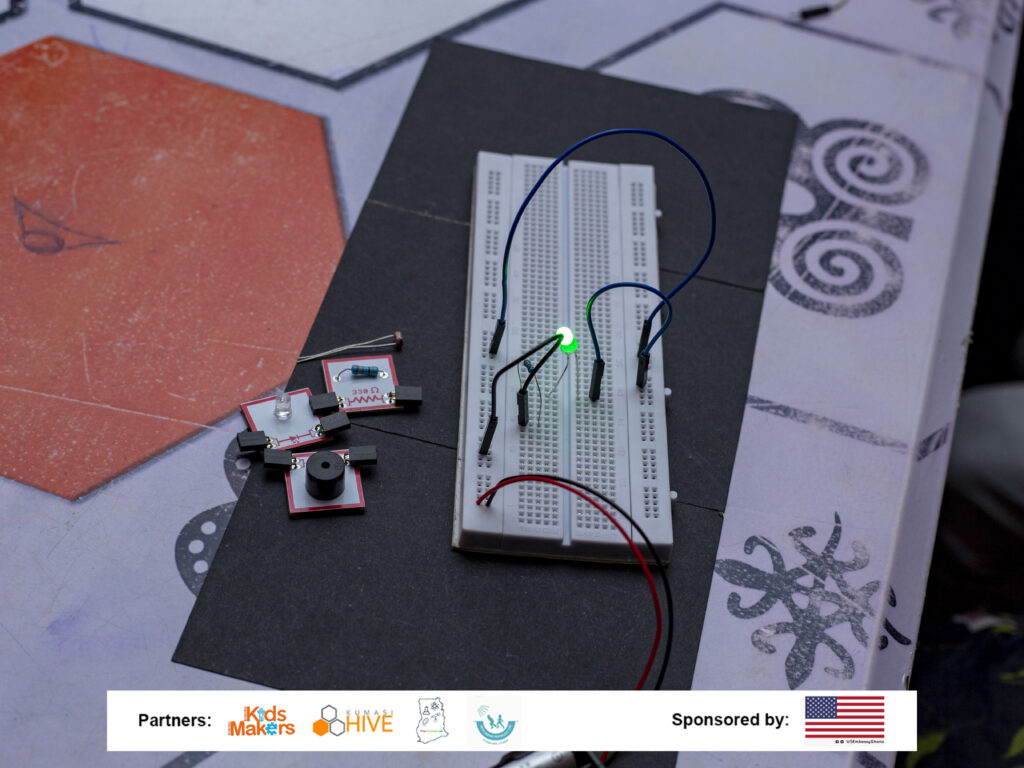
The end of the Community STEM Training Summit took place at the Pentecost International Worship Center at Kentinkrono under the theme “Raising Makers for the Next Generation.”
The Kumasi Hive is an innovation, tech, and entrepreneurship-support community and space in Kumasi, providing the needed support for the entrepreneurship ecosystem.

